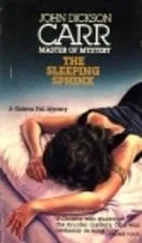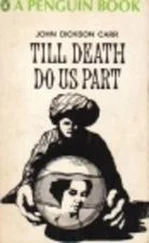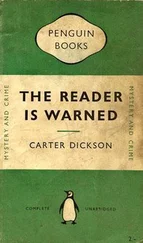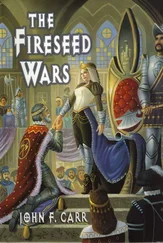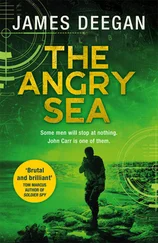'You notice something else. Not only is the suit missing at this time - but it continues missing. It never turns up at all. Add to this fact the knowledge that a pair of red Turkish slippers (remembered because they're so conspicuous) are also missing; and you begin to see that the whole ruddy suitcase has disappeared.
'That's another why. Do we know of anything else that's vanished as well? We smackin' well do! A crossbow has also vanished. Let's see: a stump cross-bow, but with a very broad head? It'd be much too big, say, to go into a little valise ... but it would fit very neatly into a suitcase, and out of sight.'
H.M.'s cigar had gone out, and he drew at it querulously. Privately, I thought this business was among the best bits he had ever done; but I hesitated to say so, for he would only bask woodenly and delight his soul obscurely with more mystification.
'Go on," I said. 'You didn't drop any hint to us that Miss Jordan was guilty until your closing speech in court; but you must have your way; so go on.'
'Assumin',' said H.M., with as close to a look of pleasure as he could get, 'assumin’ for the sake of argument that the cross-bow was stowed away in that suitcase, you have a good reason why the woman didn't sing out and tell Dyer the golf-suit wasn't upstairs. She'd hardly tell him to open the suitcase and find the cross-bow. She'd hardly open it herself in the presence of anyone else. Quite to the contrary, what would she do? Dyer was goin' upstairs after the suit. She'd think - you can lay a small wager on this - that as soon as he discovered the absence of the suit it'd be all up. The cat would come out of the bag with a reverberatin' yowl. Dyer would think of the obvious thing. He'd say: "Please, miss, will you open the suitcase and let us have that ink-pad?" Consequently, she would have to get that suitcase out of the house in a blazin' hurry. Fortunately, she had a magnificent excuse to leave the house: she was going for the doctor. Fleming was in the study, Dyer was upstairs: she could snatch up the suitcase and get away to the car without bein' observed.
'So far I thought I was treadin' over pretty safe ground. But -'
'Please wait a bit,' interposed Evelyn, frowning. 'There's one thing I don't understand here, and I've never understood. What did you think was in the suitcase? I mean, aside from Uncle Spencer's clothes?'
'Something like this,' said H.M. 'One cross-bow. One cut-glass decanter. One syphon partly emptied. One bottle of stuff to destroy the smell of whisky. Probably one screwdriver, and certainly two tumblers.'
'I know. That's what I mean. Why did Avory Hume or anyone else need to have a lot of stuff carried out of the house or stowed away? Why did they have to have two decanters? Wouldn't it have been easier to have emptied the drugged whisky out of the ordinary decanter, rinsed it, and filled it up with ordinary stuff? Wouldn't it be easier to rinse out the glasses and put them back? And if you simply put a syphon of soda on a shelf in the pantry, what would be suspicious about this? - I don't say anything about the cross-bow, because that wasn't Hume's idea; it was the murderer's; but what about the rest of it?'
H.M. gave a ghostly chuckle.
'Ain't you forgettin',' he enquired, 'that originally there was nobody in the scheme except Avory and Spencer?' ‘Well?'
'Consider the little pictures we draw,' said H.M., gesturing with his dead cigar. 'Dyer knows nothin' about the scheme. Neither does Amelia Jordan. The good Reginald Answell will walk in, and be closeted in the study with Avory. Between that time and the time Reginald is discovered as a gibberin' loony, how can Avory leave the study} Either Dyer or Jordan will be in the house all the time; Jordan will be there while Dyer goes out after the car, Dyer will be there while Jordan drives off after Spencer. You see it now? Avory couldn't dash out to the kitchen, empty the whisky, rinse the decanter, fill it up again, and walk back - with his guest lyin' unconscious in an open room, and one of his witnesses watchin’ him rinse the decanter. You can't do that when there's someone in the house, particularly someone on the alert for trouble: as Dyer was warned to be and as the woman certainly was. Similarly, Avory can't rinse the tumblers, wipe 'em, and put 'em back. He can't go shovin' syphons into pantries. He's got to lie low in that study. That's why I said, and emphasized: only two people were in the scheme to begin with.
'We'd better deal with that part of the business, and tie it up with my growin' consciousness that Amelia was guilty. As originally planned, Avory had his sideboard all set; duplicates of decanters and glasses in the sideboard underneath, ready to be changed for the others. Lord love a duck, keep one concrete fact in mind. It's this: in Avory's scheme, he had no intention whatever of callin' in the police! There wasn't goin' to be any fine-tooth-comb search of the room or even the house. He only meant to fool his own little witnesses, his private witnesses, who wouldn't pry at all. All he had to do in the world was simply to shove decanter, syphon, glasses, and mint-extract into the bottom of the sideboard - and lock the sideboard doors. He could then get rid of the stuff after a dazed Reginald had been led away gibberin’. Don't you remember (see Mottram's notes on the plan) that the key to the sideboard doors was actually found in his pocket?
'But when Amelia stepped into the scheme, she had no intention of leavin' it at that She was goin' to kill him. And that meant the police in. And all those incriminatin' souvenirs couldn't merely be left in the sideboard; they had to be got out of the house, or the blame wouldn't be fastened on the wrong feller who was lyin' unconscious.'
‘I liked her,' said Evelyn suddenly. 'Oh, dash it all! -I mean -'
'Listen,' said H.M.
He pulled open the drawer of the desk. Taking out one of those terrible blue-bound folders I had seen often enough before (this one had not been there long enough to accumulate dust), he flipped it open.
'You know she died at St Bartholomew's last night,’ he' said. 'You also know she made a statement before she died; the papers have been full enough of it. Here's a copy. Now listen to a paragraph or two.
I worked for him for fourteen years. I did more than that; I drudged for him. But I did not mind that, because for a long time I thought I loved him. I thought that when his wife died he would marry me, but he did not. I had had other offers of marriage, too; but I turned them all down, because I thought he would marry me. And he never said a word about it; he said he would always be faithful to his wife's memory. But there was nothing else to do, so I stayed on at the house.
' "I knew that in his will he had left me five thousand pounds. It was the only thing in the world I had to look forward to. Then we learned that Mary was going to get married. All of a sudden he told me this mad idea that he was going to change that will, and to put every penny he had into trust for a son that was not even born. The horrible part was that I suddenly saw he meant it. I could not have stood that, and I did not mean to stand for it.
'"... of course I knew all about what he and Spencer and Dr Tregannon were going to, do. I knew about it from the beginning, though Avory did not know I knew; he thought women should not be concerned with things like that, and he would not have told me. There is something else I must tell you, and it is that I like Mary very much. I never would have killed Avory and tried to put the blame on Mr Caplon Answell; this Reginald Answell was blackmailing Mary and I thought he would get what he deserved if I put the blame on him. How was I to know it was not the right man?"
'That's true,' growled H.M. 'It's a good half of the reason why she broke down with brain-fever when she found what she'd done.'
Читать дальше

